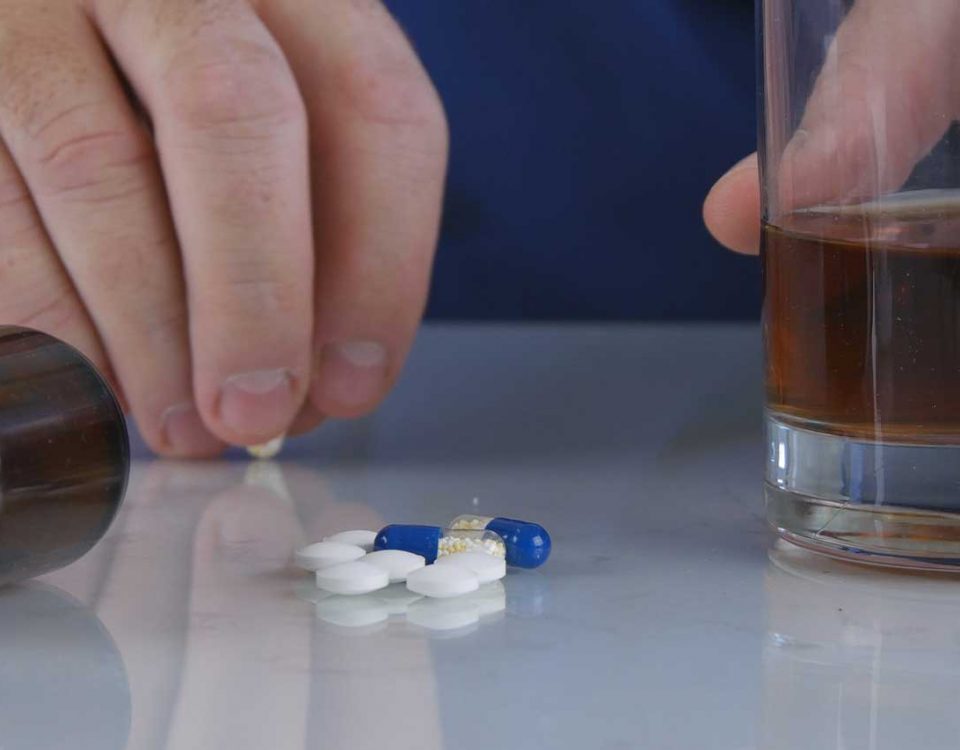People who suffer from tension headaches that don’t go away with over-the-counter medications like Tylenol may respond to butalbital. It’s part of the barbiturate drug class, which is a class of drugs that are normally prescribed to treat intense pain. While it produces relaxation and eases pain caused by severe symptoms like tension headaches, Butalbital’s side effects aren’t always pleasant.
What Is Fioricet?
A tension headache is a common type of headache disorder that occurs when the neck and scalp muscles tense up or contract. This causes severe pain that many sufferers describe as a rubber-band-around-the-head feeling or a sensation of pressure around the head. Tension headaches can be triggered by stress, hunger, lack of sleep, anxiety, and temperature changes.
Although most headaches go away with over-the-counter medications like Motrin (ibuprofen) or Tylenol (acetaminophen), tension headaches are a little more stubborn. For many people, this is where Fioricet comes in. Fioricet is the brand name for the drug combination butalbital/acetaminophen/caffeine.
Butalbital is a sedative in the barbiturate drug class that may be prescribed to people with recurring tension headaches who don’t respond to other medications. Another version of Fioricet is Fiorinal, which contains butalbital, aspirin, and caffeine. Fioricet is designed for short-term care of tension headaches or other types of pain and shouldn’t be taken longer than prescribed.
How Does Fioricet Work?
Fioricet relaxes muscle contractions and causes sedation by enhancing the inhibitory effects of gamma-aminobutyric acid (GABA). GABA is an inhibitory neurotransmitter that reduces neuronal excitability and communication throughout the nervous system. This also means that barbiturates like Fioricet depress the central nervous system, which can produce sedation and drowsiness in addition to pain relief.
Additionally, it’s important to understand what butalbital, acetaminophen, and caffeine side effects are like when combined.
- Acetaminophen or Tylenol is an over-the-counter medication that alleviates pain and reduces fever. Acetaminophen works by impairing the production of a chemical that activates pain in the nervous system called prostaglandin, which alleviates the person’s symptoms.
- Butalbital is a barbiturate that stimulates the brain’s production of GABA, a neurotransmitter that calms the nervous system by blocking communication among neurons or brain cells. It also acts as a muscle relaxant to reduce tension in the head, thereby alleviating headaches. Butalbital is a Schedule III controlled substance in the United States, meaning it serves both a medical purpose and has a high potential for abuse.
- Caffeine is a stimulant that raises a person’s blood pressure and increases their energy. It’s a common ingredient in coffee, tea, and sodas. While high blood pressure is not necessarily healthy, low blood pressure worsens headaches by causing blood vessels to expand and push against the brain. Caffeine is added to the Fioricet mixture to increase blood pressure, which causes blood vessels to constrict and increases blood flow. This alleviates the headache.
For this reason, it’s important to always take this medication as prescribed and avoid mixing it with other medications or substances like alcohol. A typical dose of Fioricet or Fiorinal is one to two tablets every four to six hours without exceeding six tablets daily. Butalbital is only designed for short-term use and should not be taken longer than two weeks unless directed by a doctor.
Fioricet (Butalbital) Side Effects
Fioricet side effects are the result of various drugs, such as acetaminophen, butalbital, and caffeine. Each of these substances produces different effects and are combined at specific doses (300 mg, 50 mg, and 40 mg, respectively) to create a combination medication that’s effective for pain treatment. However, because each of these ingredients produces side effects on its own, it’s important to take into consideration what their combined effects are if you’re thinking about taking Fioricet.
Common Fioricet side effects include:
- Sedation
- Anxiety and panic
- Dizziness
- Drowsiness
- Confusion and disorientation
- Feelings of being intoxicated
- Lightheadedness
- Nausea and vomiting
- Shaking and tremors
- Shortness of breath or difficulty breathing
- Stomach pain
- Trouble sleeping
In some cases, people develop allergic reactions to Fioricet, which is marked by symptoms like trouble breathing, itching, rashes, intense dizziness, and swelling in the face, tongue, and throat. If this reaction occurs after taking Fioricet, seek medical attention immediately.
Help for Fioricet Abuse
It’s also important to keep in mind that, as a barbiturate and Schedule II drug, Fioricet is recognized as an addictive drug. This means that long-term side effects of Fioricet include dependence and addiction if the drug is taken for longer than prescribed or if it’s taken in higher doses than prescribed.
Many people abuse barbiturates because of the euphoric and sedative high they produce when abused or combined with alcohol and other depressants. It’s because of this that barbiturates were largely replaced by benzodiazepines, which have a weaker potential for addiction. With that said, it’s important to avoid taking Fioricet longer than prescribed and taking it in higher doses than prescribed.
Do not crush your pills and snort them or find other ways to administer the drug, as this could not only be addictive but also pose an overdose threat. If you realize that you’re no longer able to control your use of Fioricet despite the repercussions it’s had on your health, finances, career, or life, then it’s time to get help.
Our drug and alcohol treatment centers offer prescription drug addiction treatment programs to help people who are addicted to medications like Fioricet achieve sobriety. Regardless of how long you or a loved one has suffered from addiction, we’re here for you.
To learn more about our nationwide detox programs and substance abuse services, call Banyan Treatment Center today at 888-280-4763.
Related Reading:
How Long Do Barbiturates Stay in Your System?
Commonly Abused Barbiturates




















